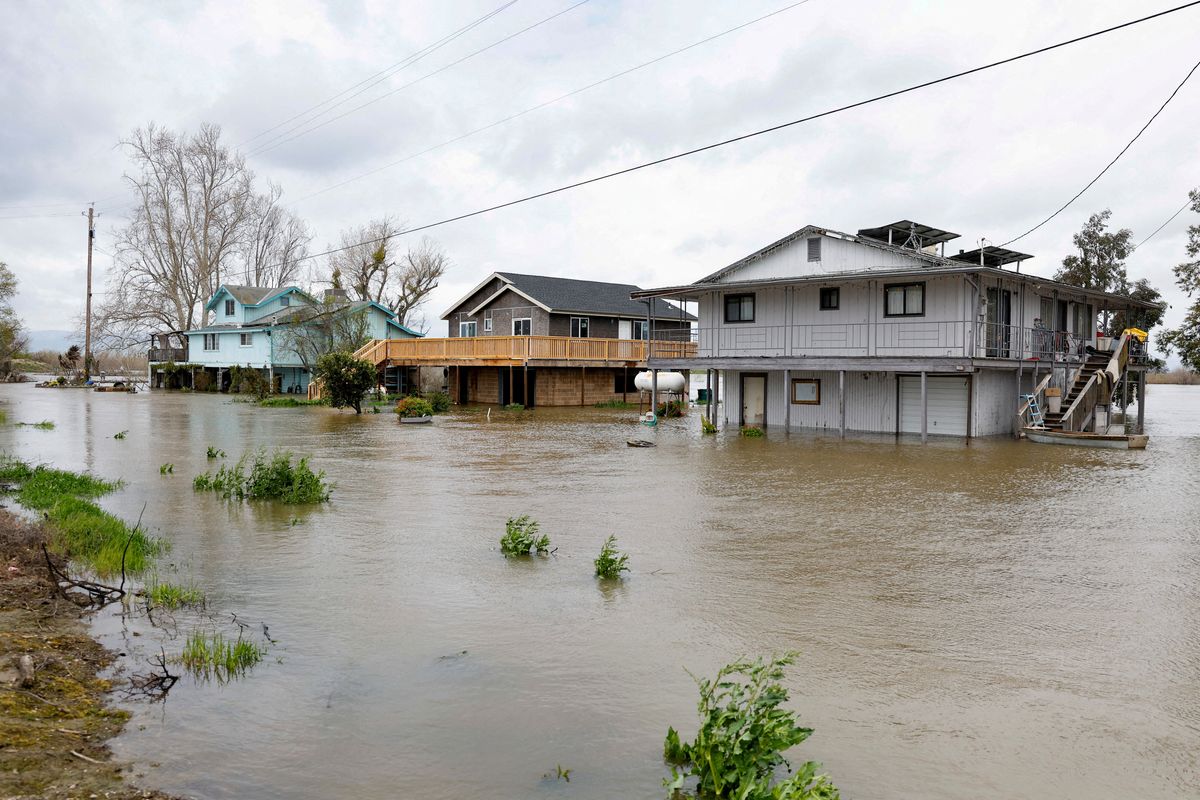Why are so many insurance groups backing out of an international climate alliance?
Recently, there’s been a wave of insurers leaving this climate alliance.

A few minutes every morning is all you need.
Stay up to date on the world's Headlines and Human Stories. It's fun, it's factual, it's fluff-free.
Back in 2021, the UN created the Net-Zero Insurance Alliance (NZIA) under the UN Environment Program’s Principles for Sustainable Insurance Initiative. The idea here is to get the insurance industry involved in the fight against climate change. The alliance, which includes major insurance players all around the world, has committed to achieving net-zero greenhouse emissions in their underwriting portfolios by 2050.
So, how are NZIA members supposed to create this shift? Well, not only are members supposed to reduce carbon emissions in their own operations, they’ve also signed up to encourage their insurance clients to change their practices to lower emissions. But now, some antitrust legal experts think this second part of the plan could pose a problem. Still, the NZIA is committed to working within the restrictions of antitrust laws.
Recently, there’s been a wave of insurers leaving this climate alliance. In the past few weeks, the NZIA has lost about half of its member organizations. Now, there are just 17 left. This is particularly a problem because of US political pushback. Some Republican politicians in the country have been working against the coalition, and they’ve really pushed back against environmental, social and governance-related (ESG) initiatives as a whole.
The thing is a lot of companies that have huge impacts on the environment, like oil and fossil fuel companies, need insurance to operate. And these same insurance companies pay out more to clients with the rise of natural disasters and extreme weather, which many attribute to emissions and climate change. So, this puts insurance companies in a particularly strategic spot on the issue.
But, critics are saying insurance groups should be more concerned with their client’s interests than these climate initiatives. They’re also concerned that these moves are driving up prices of things like oil and gas. So, they’re accusing the NZIA insurers of breaking US antitrust laws with their agreement.
Even though legal experts say it would be hard to actually sue insurers on the whole antitrust thing for being a part of the NZIA, these politicians are successfully scaring away NZIA members with the threat of legal action.
"These political attacks are now interfering with insurers' independent efforts to price climate risk, which will harm policyholders, main street investors and local economies," a spokesperson for the UN-backed Glasgow Financial Alliance for Net Zero (GFANZ) said last Friday.
While none of the insurers who left actually explained the reasons for their decision, it’s safe to assume the exodus has to do with this antitrust business. Many of them have said they still remain committed to pursuing their climate goal independently.
“Regardless of the situation, UNEP reaffirms its conviction ever since it initiated, convened, and launched the NZIA – that in order to successfully tackle the climate emergency, there is a fundamental and urgent need for collaboration, not just individual action,” the UN Environment Program said on Wednesday, pushing back against detractors.




Comments ()